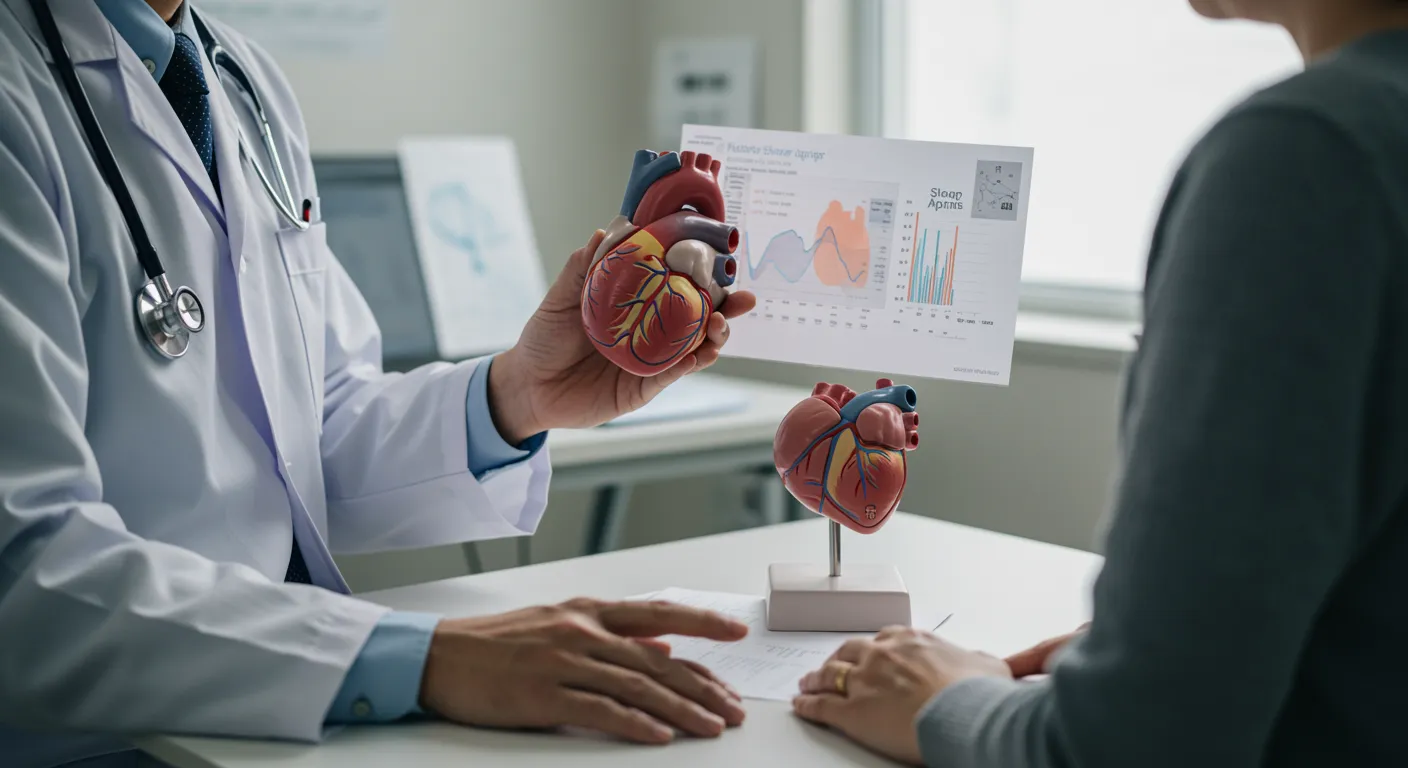Associations Among Nonrestorative Sleep Status, Sleep Apnea Syndrome and Major Adverse Cardiac and Cerebrovascular Events

Sleep is a fundamental biological process essential for the restoration of physical and mental health. Recent research has revealed alarming connections between nonrestorative sleep, sleep apnea syndrome, and major adverse cardiac and cerebrovascular events (MACCE), fundamentally changing how we approach cardiovascular risk assessment.
Understanding Nonrestorative Sleep
Nonrestorative sleep (NRS) refers to the subjective experience of unrefreshing sleep despite adequate sleep duration. Unlike simple sleep deprivation, NRS represents a qualitative impairment in sleep that affects daytime functioning and long-term health outcomes.
Characteristics of Nonrestorative Sleep
- Subjective Unrefreshing Sleep: Feeling tired despite adequate sleep time
- Fragmented Sleep Architecture: Disrupted sleep stages and micro-arousals
- Daytime Consequences: Fatigue, cognitive impairment, and mood disturbances
- Physiological Impact: Altered stress hormone patterns and inflammatory markers
The Sleep Apnea Connection
Sleep Apnea Syndrome (SAS) is a primary cause of nonrestorative sleep, characterized by repeated episodes of breathing cessation during sleep. The relationship between SAS and cardiovascular disease is well-established, but the mechanisms are complex and multifaceted.
Pathophysiological Mechanisms
- Intermittent Hypoxia: Repeated oxygen desaturation events
- Sympathetic Activation: Increased stress hormone release
- Inflammatory Response: Elevated cytokine levels and oxidative stress
- Endothelial Dysfunction: Impaired vascular function and reactivity
- Metabolic Disruption: Insulin resistance and glucose intolerance
Major Adverse Cardiac and Cerebrovascular Events (MACCE)
MACCE represents a composite endpoint including myocardial infarction, stroke, cardiovascular death, and urgent revascularization procedures. The association between sleep disorders and MACCE has profound implications for cardiovascular risk stratification.
Components of MACCE
- Myocardial Infarction: Acute heart attack events
- Cerebrovascular Accident: Stroke and transient ischemic attacks
- Cardiovascular Death: Death from cardiac or vascular causes
- Urgent Revascularization: Emergency cardiac procedures
- Heart Failure: New onset or worsening heart failure
Clinical Evidence and Research Findings
Multiple large-scale studies have demonstrated significant associations between sleep quality, sleep apnea, and cardiovascular outcomes:
Key Research Findings
"Patients with moderate to severe sleep apnea have a 2-3 fold increased risk of cardiovascular events compared to those without sleep disorders."
Risk Stratification Data
Cardiovascular Risk by Sleep Status
- Normal Sleep: Baseline risk (1.0x)
- Mild Sleep Disruption: 1.5x increased risk
- Moderate Sleep Apnea: 2.2x increased risk
- Severe Sleep Apnea: 3.1x increased risk
- Untreated Severe OSA: 4.2x increased risk
Mechanisms of Cardiovascular Risk
The pathways linking sleep disorders to cardiovascular events are multifactorial and interconnected:
Primary Mechanisms
- Autonomic Dysfunction
- Increased sympathetic nervous system activity
- Elevated heart rate and blood pressure
- Reduced heart rate variability
- Inflammatory Cascade
- Elevated C-reactive protein (CRP)
- Increased interleukin-6 (IL-6) and tumor necrosis factor-α
- Activation of nuclear factor-κB pathways
- Metabolic Disruption
- Insulin resistance and diabetes mellitus
- Dyslipidemia and altered lipid metabolism
- Leptin resistance and weight gain
- Vascular Dysfunction
- Endothelial dysfunction and reduced nitric oxide
- Increased arterial stiffness
- Accelerated atherosclerosis
Clinical Assessment and Screening
Early identification of patients at risk requires comprehensive assessment of sleep quality and cardiovascular risk factors:
Screening Tools
- Epworth Sleepiness Scale: Assessment of daytime sleepiness
- Pittsburgh Sleep Quality Index: Comprehensive sleep quality evaluation
- STOP-BANG Questionnaire: Sleep apnea risk assessment
- Berlin Questionnaire: Sleep apnea screening tool
Diagnostic Evaluation
- Polysomnography: Gold standard for sleep disorder diagnosis
- Home Sleep Testing: Convenient screening for sleep apnea
- Cardiovascular Assessment: ECG, echocardiography, and stress testing
- Biomarker Analysis: Inflammatory markers and cardiac enzymes
Treatment Implications
Addressing sleep disorders may significantly reduce cardiovascular risk and improve long-term outcomes:
Evidence-Based Interventions
- CPAP Therapy: Continuous positive airway pressure for sleep apnea
- Oral Appliance Therapy: Mandibular advancement devices
- Surgical Interventions: Upper airway surgery for selected patients
- Lifestyle Modifications: Weight loss, exercise, and sleep hygiene
Cardiovascular Benefits of Treatment
- Blood Pressure Reduction: 5-10 mmHg decrease in hypertensive patients
- Improved Heart Rate Variability: Enhanced autonomic function
- Reduced Inflammatory Markers: Decreased CRP and cytokine levels
- Better Metabolic Control: Improved insulin sensitivity
Future Directions and Research
Ongoing research continues to refine our understanding of sleep-cardiovascular interactions:
Emerging Areas of Investigation
- Precision Medicine: Personalized treatment based on genetic and biomarker profiles
- Combination Therapies: Multi-modal approaches to sleep disorder treatment
- Preventive Strategies: Early intervention in high-risk populations
- Technology Integration: Wearable devices for continuous monitoring
Clinical Recommendations
Based on current evidence, healthcare providers should consider the following approach:
- Universal Screening: Assess sleep quality in all cardiovascular patients
- Risk Stratification: Incorporate sleep disorders into cardiovascular risk assessment
- Multidisciplinary Care: Collaborate with sleep medicine specialists
- Treatment Optimization: Ensure adequate treatment of identified sleep disorders
- Long-term Monitoring: Regular follow-up and outcome assessment
Conclusion
The associations among nonrestorative sleep status, sleep apnea syndrome, and major adverse cardiac and cerebrovascular events represent a critical intersection in modern medicine. Understanding these relationships enables healthcare providers to identify high-risk patients, implement appropriate interventions, and potentially prevent serious cardiovascular complications.
As we continue to unravel the complex relationships between sleep and cardiovascular health, it becomes increasingly clear that quality sleep is not a luxury but a medical necessity. The integration of sleep medicine into cardiovascular care represents a paradigm shift toward comprehensive, preventive healthcare that addresses the root causes of disease rather than merely treating symptoms.